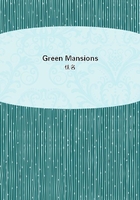
第7章
In about eight days I bade good-bye to my generous friend Panta, whom I regarded, after having seen much of him, as a kind of savage beast that had sprung on me, not to rend, but to rescue from death; for we know that even cruel savage brutes and evil men have at times sweet, beneficent impulses, during which they act in a way contrary to their natures, like passive agents of some higher power. It was a continual pain to travel in my weak condition, and the patience of my Indians was severely taxed; but they did not forsake me; and at last the entire distance, which Iconjectured to be about sixty-five leagues, was accomplished; and at the end I was actually stronger and better in every way than at the start. From this time my progress towards complete recovery was rapid. The air, with or without any medicinal virtue blown from the cinchona trees in the far-off Andean forest, was tonic; and when I took my walks on the hillside above the Indian village, or later when able to climb to the summits, the world as seen from those wild Queneveta mountains had a largeness and varied glory of scenery peculiarly refreshing and delightful to the soul.
With the Maquiritari tribe I passed some weeks, and the sweet sensations of returning health made me happy for a time; but such sensations seldom outlast convalescence. I was no sooner well again than I began to feel a restless spirit stirring in me. The monotony of savage life in this place became intolerable. After my long listless period the reaction had come, and I wished only for action, adventure--no matter how dangerous; and for new scenes, new faces, new dialects. In the end I conceived the idea of going on to the Casiquiare river, where I would find a few small settlements, and perhaps obtain help from the authorities there which would enable me to reach the Rio Negro. For it was now in my mind to follow that river to the Amazons, and so down to Para and the Atlantic coast.
Leaving the Queneveta range, I started with two of the Indians as guides and travelling companions; but their journey ended only half-way to the river I wished to reach; and they left me with some friendly savages living on the Chunapay, a tributary of the Cunucumana, which flows to the Orinoco. Here I had no choice but to wait until an opportunity of attaching myself to some party of travelling Indians going south-west should arrive; for by this time I had expended the whole of my small capital in ornaments and calico brought from Manapuri, so that I could no longer purchase any man's service. And perhaps it will be as well to state at this point just what I possessed. For some time I had worn nothing but sandals to protect my feet; my garments consisted of a single suit, and one flannel shirt, which I washed frequently, going shirtless while it was drying. Fortunately Ihad an excellent blue cloth cloak, durable and handsome, given to me by a friend at Angostura, whose prophecy on presenting it, that it would outlast ME, very nearly came true. It served as a covering by night, and to keep a man warm and comfortable when travelling in cold and wet weather no better garment was ever made. I had a revolver and metal cartridge-box in my broad leather belt, also a good hunting-knife with strong buckhorn handle and a heavy blade about nine inches long. In the pocket of my cloak I had a pretty silver tinder-box, and a match-box--to be mentioned again in this narrativeand one or two other trifling objects; these I was determined to keep until they could be kept no longer.
During the tedious interval of waiting on the Chunapay I was told a flattering tale by the village Indians, which eventually caused me to abandon the proposed journey to the Rio Negro. These Indians wore necklets, like nearly all the Guayana savages; but one, I observed, possessed a necklet unlike that of the others, which greatly aroused my curiosity. It was made of thirteen gold plates, irregular in form, about as broad as a man's thumb-nail, and linked together with fibres. I was allowed to examine it, and had no doubt that the pieces were of pure gold, beaten flat by the savages. When questioned about it, they said it was originally obtained from the Indians of Parahuari, and Parahuari, they further said, was a mountainous country west of the Orinoco.
Every man and woman in that place, they assured me, had such a necklet. This report inflamed my mind to such a degree that Icould not rest by night or day for dreaming golden dreams, and considering how to get to that rich district, unknown to civilized men. The Indians gravely shook their heads when Itried to persuade them to take me. They were far enough from the Orinoco, and Parahuari was ten, perhaps fifteen, days' journey further on--a country unknown to them, where they had no relations.